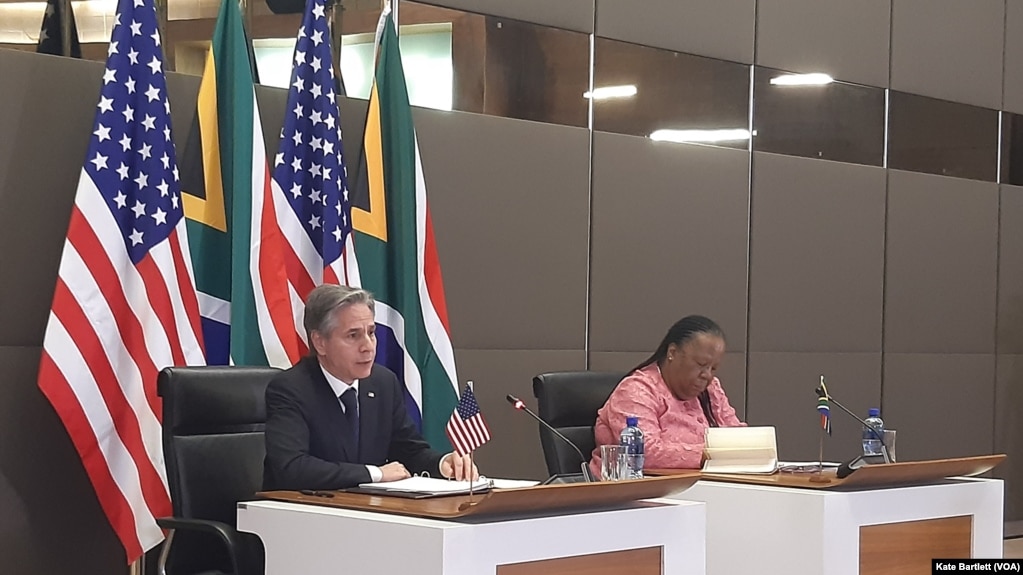PRETORIA, SOUTH AFRICA —
South African Minister of International Relations Naledi Pandor accused the West of sometimes taking a patronizing and bullying attitude toward Africa, as she hosted U.S. Secretary of State Antony Blinken on the first leg of his Africa visit. Pandor made it clear that South Africa has different views from the U.S. on Ukraine, China, and Israel and the Palestinians.
At a joint press conference in the South African capital, Blinken stressed he was not on his three-country tour of the continent in order to counter Moscow and Beijing’s growing influence in the region, as has been widely speculated, after Russian Foreign Minister Sergey Lavrov visited last month.
“Our commitment to a stronger partnership with Africa is not about trying to outdo anyone else,” Blinken said.
Blinken spoke, too, about U.S. support of Ukraine, saying Russia’s invasion was an aggression against the entire international order.
South Africa has remained neutral on the conflict with Russia, its partner in the BRICS group of countries, and abstained from any U.N. votes on the matter, though Pandor said the country “abhorred” war and would like to see an end to the conflict.
However, she said the different approaches by the international community to different conflicts sometimes “leads to cynicism about international bodies.” She referenced the plight of the Palestinians.
“Just as much as the people of Ukraine deserve their territory and freedom, the people of Palestine deserve their territory and freedom,” she said, “and we should be equally concerned at what is happening to the people of Palestine as we are with what is happening to the people of Ukraine. We’ve not seen an even-handed approach.”
Pandor added that while it didn’t come from Blinken, South Africa had experienced pressure from some in the West to align with its policy on Ukraine. She also appeared to criticize the U.S. bill passed in April, “Countering Malign Russian Activities in Africa Act,” which has been seen by some on the continent as a vehicle to punish African countries that have not toed the line on Ukraine.
“From some of our partners in Europe and elsewhere, there has been a sense of patronizing bullying — ‘You choose this or else.’ And the recent legislation passed in the United States of America by the House of Representatives, we found a most unfortunate bill.”
Bob Wekesa, director of the African Center for the Study of the United States, said Pandor’s candid remarks at the press conference showed the closed-door meeting between the U.S. and South African sides “must have been a very difficult one.”
“I think the U.S. is attempting to figure out how to get South Africa on to its side, but South Africa is not coming to the party,” Wekesa said.
Blinken was in Pretoria to launch the new U.S. Strategy for Sub-Saharan Africa, which focuses on areas such as climate change, trade, health and food insecurity.
During his remarks Monday, he also criticized Beijing for its strong reaction to House speaker Nancy Pelosi's visit to Taiwan.
Pandor would not comment specifically on Taiwan but did say South Africa did not want to be made party to a conflict between China and the U.S.





